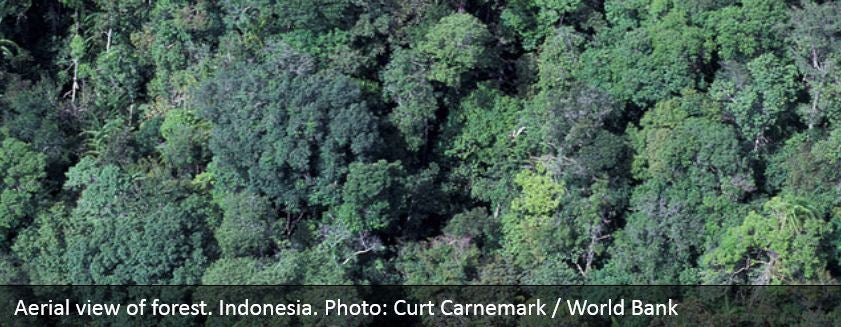

Washington D.C., December 04, 2014 - Forests play a key role to combat climate change. As greenhouse gases concentrate in the atmosphere, they entrap heat. This increased amount of heat consequently conducts to changes in climate patterns, which affect everything on the planet. One of the biggest contributors to climate change is carbon dioxide, of which the human race has produced increasing amounts through time. Trees ease the concentration of carbon dioxide by absorbing it from the air and converting it into clean oxygen. Because of this natural process, healthy forests are our most efficient, inexpensive, and natural system to combat climate change.
Two months after the UN Climate Summit, where the GEF provided strong support for global action on forests, the New York Declaration on Forests catalyzed a call to action from public and private sectors as well as CSO’s to combat deforestation and ensure new forests are planted. Among the many actions and partnerships there was a clear commitment- from world leaders, companies, civil society and indigenous people- to endorse a global timeline to cut natural forest loss in half by 2020, and strive to end it by 2030. It also called for restoring forest and croplands of an area of 350 million ha.
Forests cover approximately one third of the Earth’s land surface and provide critical ecosystem goods and services, including food, fodder, water, shelter, nutrient cycling, provide habitat for a wide range of species and help alleviate land degradation and desertification. Over the past decade an area of the size of Greece has been lost every year.
Efforts to maintain, restore, enhance forest management, and increase regional and global co-operation are key in the new GEF-6 Sustainable Forest Management Strategy. The strategy is applicable to pristine forests, managed forests, and degraded forestland under all forms of ownership, tenure, and use regimes including public, private, community, and traditional or customary arrangements and aims to improve better management of 20 million hectares of forest landscapes a reality within the next four years. The GEF also targets key global drivers of deforestation through Taking Deforestation out of Commodity Supply Chain, a brand new $45-million integrated program.
The GEF is participating in the 20th session of the Conference of the Parties for the United Nations Framework Convention on Climate Change (UNFCCC), held from 1 to 12 December and hosted by the government of Peru in Lima.
The COP 20 will serve to exchange information on the development of different approaches, including joint mitigation and adaptation approaches for the integral and sustainable management of forest. The COP will address the issue of financing for forests, taking into account different policy approaches, to focus its soonest possible forum on issues related to finance for forests.
GEF’s take on forests is fully aligned with current global efforts that approach the issue in a holistic manner –recognizing the links between poverty alleviation and sustainable management of forest resources.
The GEF’s unique position to aid countries’ implementation of the three Rio Conventions(UNCBD, UNFCCC and UNCCD) backstops its ambition to achieve multiple environmental benefits and services that forests provide. To maintain them, the GEF also actively cooperates with the United Nations Forum on Forests on a range of the issue related topics.